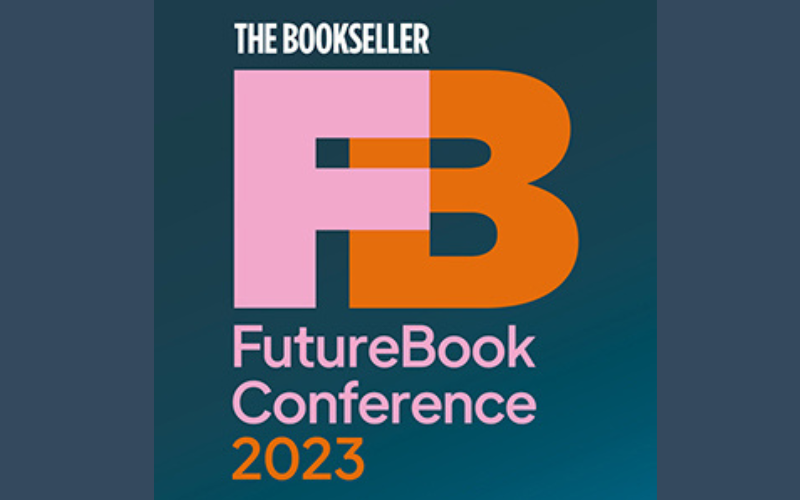Back to the FutureBook
During my publishing career, I’ve been to many conferences claiming that the revolution is coming – or happening now. We’ve had e-books, social media, the Internet of Things, Amazon, the collapse of the high street, the revival of the high street, offshoring, covid and now machine learning (ML) and artificial intelligence (AI). All of these will purportedly upend our world.
Are ML and AI a revolution or an evolution? Or is it too early to tell? The Bookseller’s FutureBook Conference in November aimed to answer these questions – and took a look at audio, leadership and Diversity, Equality & Inclusion (DEI) along the way.
The rise of the machines
Speakers agreed that the future impact of AI will depend on legal outcomes, largely whether those who took content without permission ever pay for it. Tech companies claim that it may be moral to seek permission from copyright holders to use their content in large language models (LLMs), but it’s not practical.
My guess is that they won’t ever pay – as for internet content. Publishing will suffer, and adapt. Nadim Sadek of Shimmr AI argued that AI’s been around for decades, but people are only engaging with it now that it’s communicating and dealing with language. As an industry based on words, we are exposed and vulnerable. Steal them, and what do we have left?
Nicola Solomon of the Society of Authors was positive but cross about AI. She reckons it won’t destroy publishing because creators are innovators, and readers will still value human insight. But the challenges for authors will be acute. Consultancy KPMG estimates 43% of jobs in writing will be lost to AI. This is bad news for authors, as many need such work for supplementary income.
Dan Guthrie of the Alliance for Intellectual Property explained that there are 10 major LLMs, with millions of businesses using them. So the big companies can well afford to pay content owners. He counsels publishers to be tougher about their content, protect it and collaborate more.
The upside of AI
There were positives about AI, too. In audio, OpenAI can create synthetic voices from real speech, and Kindle Direct Publishing (KDP) can convert an e-book to an audiobook within 72 hours.
Jason Kelly of Sounded thought that AI would be good for audio non-fiction and academic titles (although it’s tricky to reference an academic audiobook). Text-to-speech is improving fast, and the listener can choose different voices. Soundscape features are improving, making audiobooks more interesting.
AI can help with personalisation, especially for children. The Toniebox enables people to create their own stories, as Ravina Bajwa of Timbre Audio pointed out. And it’s good for localisation, for example, making Welsh-language versions of books affordable.
In education, Brigid Evans revealed that Pearson is creating an interactive tutor for language learning. It can help students with questions that they can’t answer, and could generate new questions, tailored to their weaknesses. In general, AI could make translation more economic.
Knowing your limits
Young people coming into publishing expect good pay, support, training, to be heard and promoted quickly, otherwise they’ll leave. Mentoring and coaching were mentioned several times during the day as helpful, if not essential. As the Female Leadership in Publishing (FLIP) panel noted, Gen Z (b. 1997−2012), don’t apologise for saying ‘it’s not OK’, whilst Briony Grogan of Pan Macmillan noted that they’re good at setting boundaries.
Most speakers agreed that flexible working is better now, but it’s not always truly flexible. One-third of Canongate’s staff work part-time, and it’s capped the number of titles it publishes each year, to avoid overload. As Joel Rickett of Ebury put it: ‘Not every book can be a passion project.’
DEI – must try harder
Grogan said that publishing is moving slowly on DEI. It’s not just about attracting and retaining candidates, but also the company’s output, in terms of books or content. News Media (where she worked previously) knew it had a problem, because 94% of UK journalists are white. Ironically, publishing is more left-wing and not acting as urgently, as it doesn’t seem to realise that it needs to act. Senior recruitment especially isn’t diverse, and companies need to accept more people from outside the industry into these roles.
Meanwhile, publishing is struggling to recruit, retain and promote diverse talent. Minorities are being hired, but they need to feel included, to be supported and have the tools to succeed – otherwise they’ll quit. People need to be their authentic self at work, not have to change to fit in. Promotion should be judged on ability, not appearance. That said, people recognise change is needed, and there are lots of good training initiatives happening now.



Petra Green
Petra Green is Head of the PTC and a freelance publishing consultant. Follow her on LinkedIn.